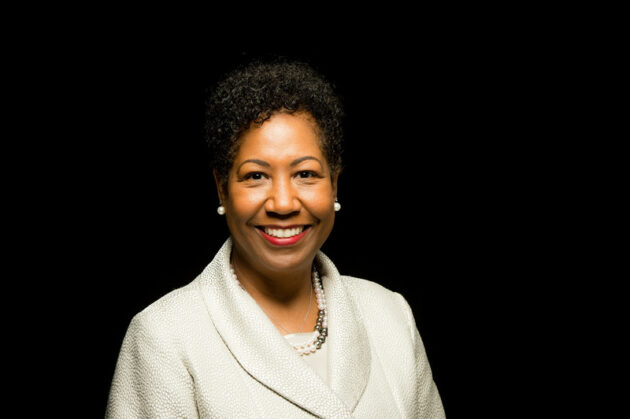‘It’s on us to dismantle racism.’ 10 steps tech and business leaders can take toward equity
Over the past decade, U.S. tech companies have solved some of the world’s most complex challenges. But the industry remains utterly confounded when it comes to improving diversity.
Less than 1% of employees at U.S. software companies are black according to Labor Department statistics covering 2019, before the coronavirus crisis disproportionately hurt job security for people of color in America. Black professionals held just 3.3% of all senior or executive leadership roles in the U.S. in 2018, and there are just four black CEOs of Fortune 500 companies.
That failure has taken on new significance over the past two weeks as protests across the country demand racial equity and justice in the wake of the deaths of George Floyd and other black Americans at the hand of white police officers. Technology companies big and small are taking stock of their diversity efforts and seeking new solutions to widen the opportunity gap between black and white workers.
On this special episode of the GeekWire Podcast, leaders in technology, business, and politics discussed concrete steps that their peers can take to become better allies to people of color and build more equitable workplaces.
Former Tacoma Mayor and past Seattle Metropolitan Chamber of Commerce CEO Marilyn Strickland took a break from her Congressional campaign to moderate the discussion. She was joined by Adriane Brown, who sits on the board of Axon and eBay and serves as venture partner at Flying Fish Ventures; Remitly CEO and co-founder Matt Oppenheimer, and Leafly Chief Product Officer and longtime Seattle entrepreneur Dave Cotter.
Listen or watch highlights from their discussion above, and read 10 steps they suggested employers take to build more equitable workplaces.

Contents
- 1 1. “Learn the history” — Strickland
- 2 2. Insist on diversity
- 3 3. “You cannot outsource diversity” — Cotter
- 4 4. Support employees getting involved
- 5 5. Embrace hard conversations
- 6 6. “One word … vote.” — Brown
- 7 7. Invest in K-12 technology access for black communities
- 8 8. Invest in black-owned businesses
- 9 9. Make it personal
- 10 10. Practice
1. “Learn the history” — Strickland
The technology industry rewards proactive problem-solvers who move fast. But those instincts don’t necessarily help leaders build empathy with marginalized communities.
“We have to resist our bias to action to start knocking down a punch list of activities in the absence of having really learned,” Cotter said.

Instead of jumping into action, leaders should focus on learning and listening to communities that have been left behind by the digital revolution.
“Learn the history,” Strickland said.
The panelists recommended seeking out resources, rather than asking people of color to provide them. Oppenheimer suggested starting with “So You Want to Talk About Race,” written by the Seattle author Ijeoma Oluo. For additional resources, see anti-racism reading lists from The Guardian, Vox, and NPR.
2. Insist on diversity
Tech companies have long said diversity is a priority, but the numbers don’t support that claim. Brown — and a growing body of research — views this not just as a PR problem, but a productivity problem.

“Diverse teams, diverse boards, diverse groups produce better results consistently,” she said. “When you don’t insist on that as a leader, you’re holding your company back. You’re letting excuses get in the way of better performance.”
Commitments from tech companies need to go beyond hiring a chief diversity officer, according to the panelists.
3. “You cannot outsource diversity” — Cotter
Tech companies often enlist outside consultants to help address their diversity and equity issues, a mistake according to Cotter, who believes it must be a priority for the executive leadership team.
“You cannot outsource this any longer,” he said. “It actually requires tech leaders, CEOs, the C-Suite … are going to actually have to put in the work and determine how to absorb this into the day-to-day existence and execution of the company.”
That could look like setting objectives for diversity that are as rigorous as the product goals company leaders implement. It could mean changing metrics used to vet new candidates so that they are more inclusive of workers from different backgrounds. For more information on how to weave inclusion programs into day-to-day operations, check out our discussion with Diverse City CEO Cheryl Ingram.
4. Support employees getting involved
Some employers in the tech industry are responding to the new wave of civil rights activism by providing perks and programs to support employees who are getting involved. Twitter and Square said Tuesday they will make Juneteenth — which commemorates the abolition of slavery — a company holiday every year on June 19. Other companies are giving employees time off to participate in protests.

At Remitly, Oppenheimer implemented a program in which executives will match employee donations to a set of racial justice organizations up to $25,000.
“This, I believe, is the work of not the black community and black individuals to do,” Oppenheimer said. “This is on privileged communities to really do the work and heavy lifting here. It’s on us to dismantle racism and to do anti-racism work.”
5. Embrace hard conversations
The events of the past two weeks are forcing many people to have difficult conversations with coworkers, employees, friends, and loved ones. Though they can be uncomfortable, the panel agreed those discussions are essential for change.
“Don’t be afraid to talk about it,” Strickland said. “For folks who are not black, talking about anti-blackness does not make you anti-white, anti- anything else. This is about trying to address the problem.”
6. “One word … vote.” — Brown
At a time when elected officials across the country are discussing defunding the police, economic equality, and solutions to systemic racism, voting is an important tool that all citizens wield.
“The problems that we have of inequality and injustice and human rights start at the local level and [they are] endless,” Brown said. “It goes all the way to the top of our country’s leadership across all branches. If we don’t vote, we will not get rid of the systemic things that have kept us in this state.”
7. Invest in K-12 technology access for black communities
By forcing thousands of students to quickly shift to online learning, the coronavirus pandemic has exposed longstanding inequities in access to technology that can hold under-resourced communities back. White children with access to computers and internet from an early age have a lasting advantage in STEM fields, according to Cotter.
“To go to the source, you have to really start at the beginning, making certain that as these kids are growing up [with] access to technology, no different than anyone else,” he said.
8. Invest in black-owned businesses
While it’s critical to make sure young black people have access to technology and education, it’s equally important to address inequities “at the other end of the spectrum,” Cotter said.
“When they grow up, you fund their companies … you have more black individuals in your executive ranks,” he said. “When you fuse those two things together down the road, you end up with kids in elementary school and junior high that have computers, that have high-speed internet access, and they see, as role models, black executives and black board members. Today for a lot of them, what they see, the titans of the tech industry, it’s Bezos it’s Gates it’s Zuckerberg, it’s Jobs, it’s Benioff, and they don’t look like me.”
9. Make it personal
Underpinning the entire discussion was the importance of empathy. The panelists encouraged leaders to listen, learn, and try to understand the lived experience of people of color in this country.
“Good allyship starts when you first accept that this is personal for black people,” Brown said. “It’s personal, and when you make it personal for you, you are then in a position to be an antiracist.”
10. Practice
Finally, Oppenheimer shared how he is approaching the racial justice movement as the leader of a tech company. His focus has been on practicing allyship every day, rather than thinking about it as a goal to be accomplished.
“Everything I’m doing is not enough and it’s a journey and it’s a practice,” he said. “It’s about trying to listen to the black community, especially right now, to say what else can I do? What else can other allies do?”
Conclusion: So above is the ‘It’s on us to dismantle racism.’ 10 steps tech and business leaders can take toward equity article. Hopefully with this article you can help you in life, always follow and read our good articles on the website: Ngoinhanho101.com





